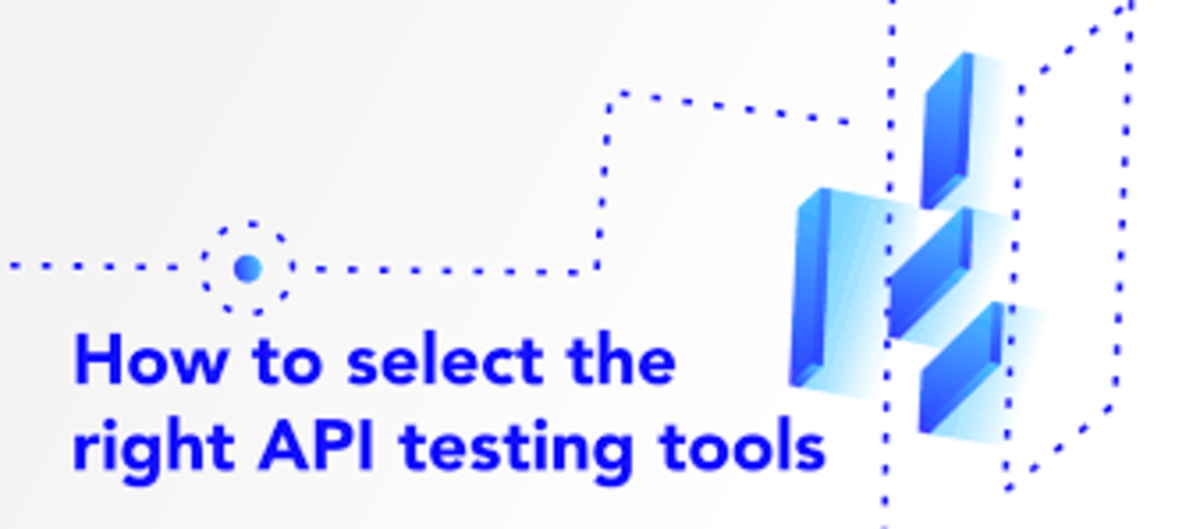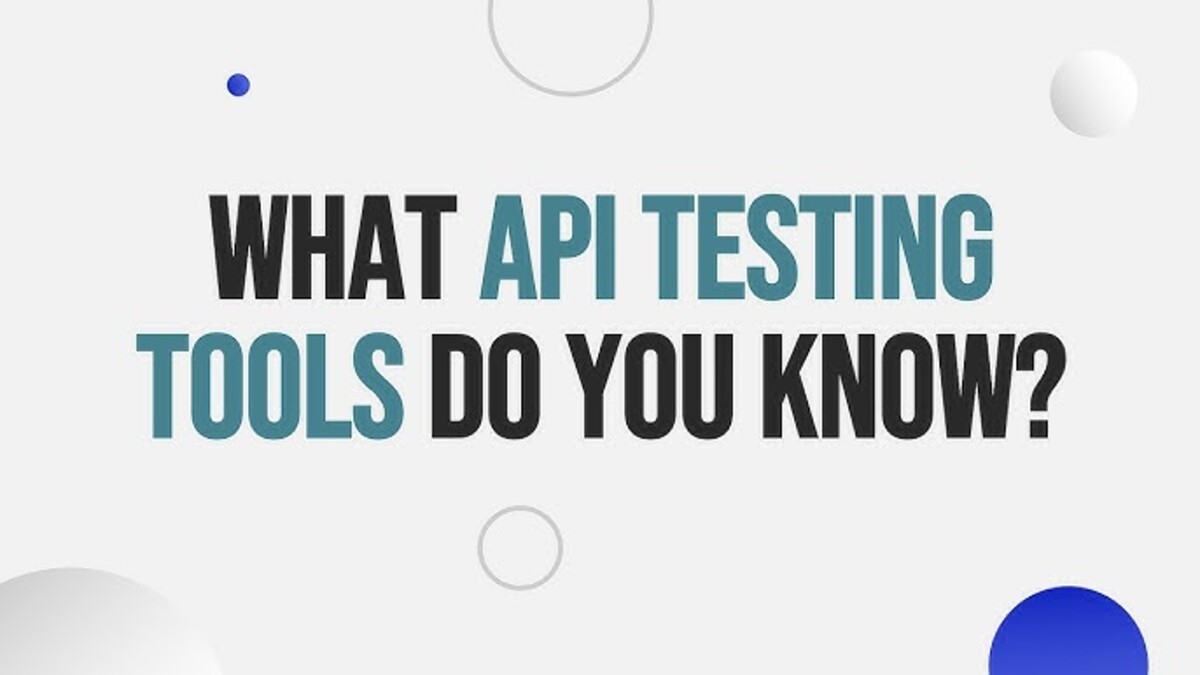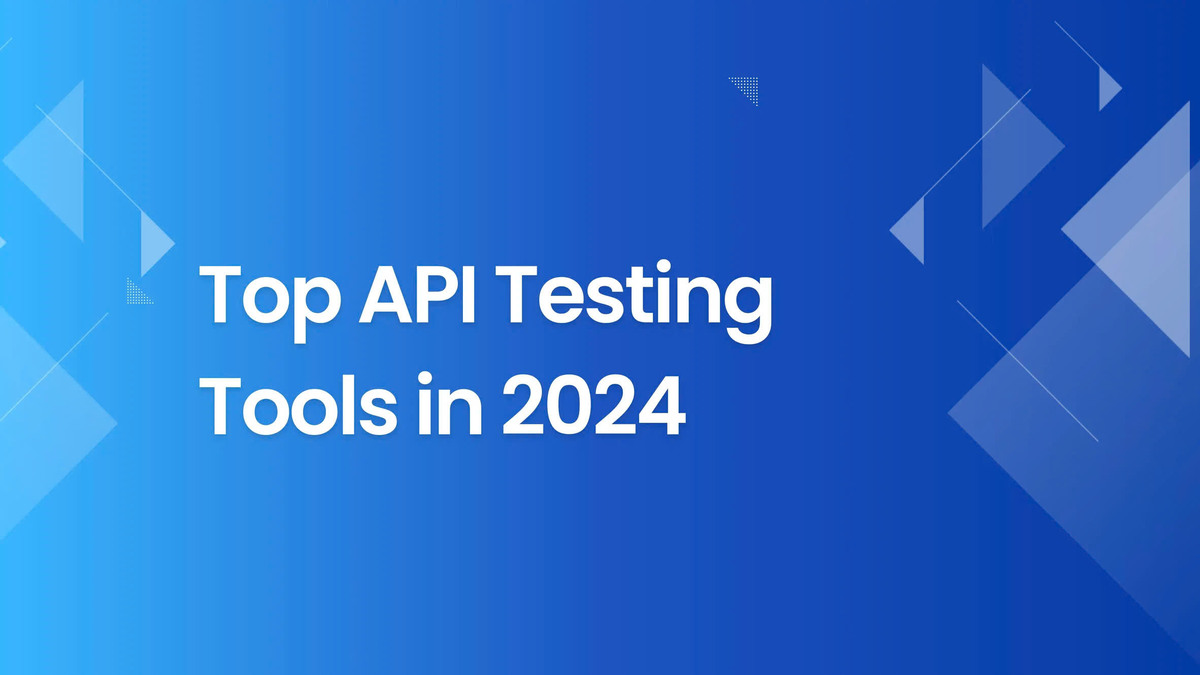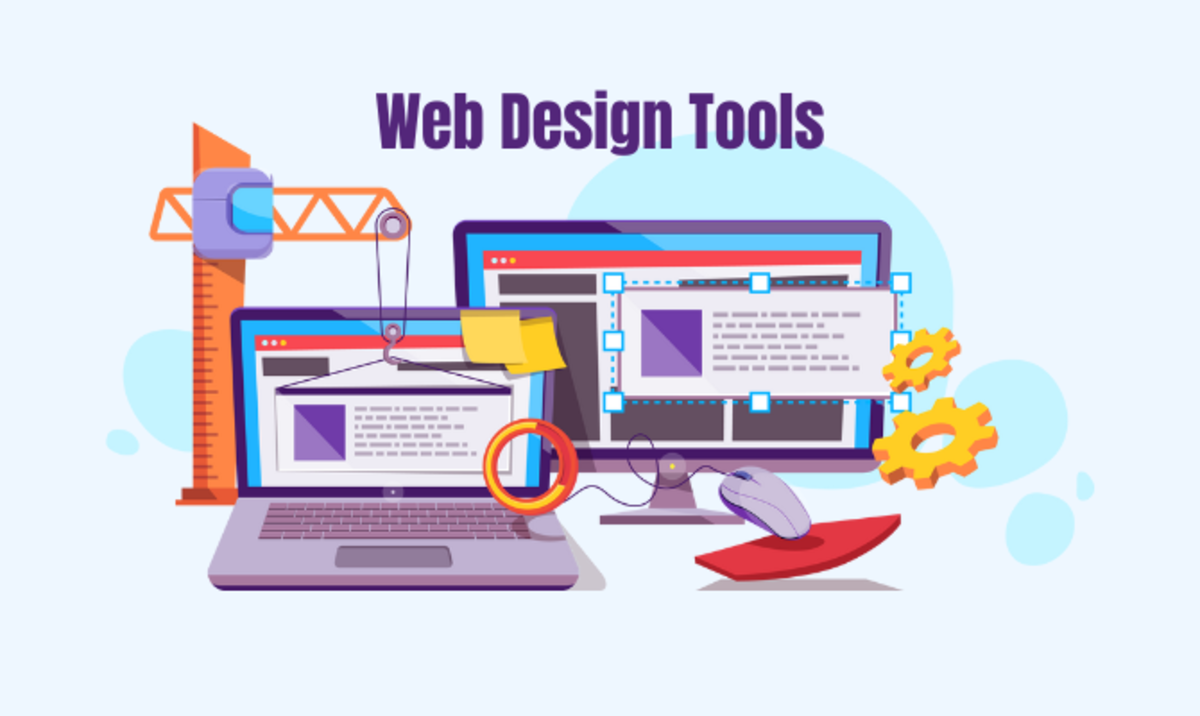In today's software development landscape, APIs (Application Programming Interfaces) serve as crucial connectors between various applications. They allow data exchange and interaction, making them essential for a wide range of functionalities in modern software. With the growing complexity of applications and the increasing need for efficiency, the importance of API testing cannot be overstated. Ensuring the quality of APIs is vital to maintaining stable and efficient applications. This article explores the top 10 automated API testing tools available in 2024, highlighting their features, advantages, and how they integrate with current software testing practices.
I. Introduction
The significance of APIs in modern software development
APIs act as the backbone of contemporary software systems by enabling seamless communication and interaction between different applications. In an era where microservices architecture and cloud-native design are prevalent, APIs facilitate the modularity and scalability that developers crave. As applications evolve and expand, ensuring the quality and reliability of APIs becomes paramount for developers and testers alike.
Quality assurance through API testing is critical for identifying errors, verifying compatibility, and ensuring optimal performance. However, traditional methods of API testing can pose significant challenges, including time consumption and error-prone manual processes. The advent of AI tools and automated solutions has revolutionized this space, providing more efficient ways to perform API testing.
Read more: Top 10 Most Popular AI Text To Speech (TTS) Tools Today
Challenges of traditional API testing
Traditional approaches to API testing often involve extensive manual efforts, which can be time-consuming and labor-intensive. Developers frequently need to write intricate test scripts to verify various API functionalities. As APIs grow in complexity or change frequently, maintaining these scripts becomes a daunting task, leading to inconsistencies and potential oversights. Human error further complicates the situation, introducing another layer of risk into the testing process.
Moreover, scaling testing efforts to keep pace with rapid development cycles can be particularly troublesome. Teams may find it difficult to effectively manage the increased workload without compromising quality. This starkly contrasts with the goals of Continuous Integration/Continuous Deployment (CI/CD) practices, where automation and agility are prioritized.
AI tools - A breakthrough solution for API testing
AI-driven solutions for API testing have emerged as a groundbreaking response to these challenges. By leveraging advanced algorithms, AI tools can optimize test case creation, detect issues earlier in the development cycle, and improve overall software quality. Through intelligent analysis of API behavior, these tools can automatically generate comprehensive test cases tailored to the specific API under examination, drastically reducing the time and effort involved.
As we delve into the top automated API testing tools of 2024, we'll examine how these AI-powered solutions enhance efficiency, maintain quality, and simplify the testing process. We aim to equip you with knowledge on selecting the right tool for your needs, boosting productivity, and ultimately delivering high-quality software.
II. Key Features of AI API Testing Tools
Understanding key features that make AI API testing tools effective is essential for any software development team. These tools offer a myriad of functionalities designed to streamline the testing process, enhance accuracy, and facilitate faster releases.
Automated Test Case Creation

One of the standout features of AI API testing tools is their ability to automate test case generation.
By analyzing the structure and functionality of APIs, these tools can create extensive test cases that cover various scenarios and edge cases. This automation significantly reduces the time and effort required for manual test case creation, which is especially beneficial for teams working on complex APIs with rapidly changing specifications.
Furthermore, automated test case generation means that if an API undergoes changes—be it through new features, modifications, or deprecations—the testing tool can automatically update the relevant test cases to reflect those alterations. It eliminates the risk of missed tests due to human oversight, contributing to a higher level of software quality.
The reduction in manual intervention also allows testers to focus their attention on other strategic areas, such as exploratory testing and usability assessments, rather than getting bogged down in routine tasks.
Read more: Top 12 Outstanding AI Product Research Tools Today
Error Detection and Issue Identification
Effective error detection is another prominent feature of AI API testing tools. Utilizing sophisticated algorithms, these tools can analyze the responses returned by APIs to identify potential vulnerabilities, performance bottlenecks, and compatibility issues.
AI models can learn from historical data and utilize statistical analysis to predict likely failures and provide early warnings before they escalate into user-facing issues. When integrated within CI/CD pipelines, these tools can execute tests automatically after each build, ensuring that any newly introduced errors are caught swiftly during the development phase.
By establishing proactive monitoring and alerting mechanisms, developers can ensure that their APIs not only function correctly but also adhere to performance and security standards. Early identification of issues can save organizations significant costs related to late-stage fixes and unsatisfied users.
Automated and Continuous Testing
Automation is at the core of modern software testing methodologies, and AI API testing tools embody this principle.
These tools seamlessly integrate into CI/CD workflows, allowing for continuous testing throughout the software development lifecycle. Continuous testing ensures that all code changes are validated against predefined criteria before they reach production, mitigating risks associated with deployment and enhancing overall software quality.
Additionally, by implementing automated testing frameworks, teams can achieve faster feedback loops, allowing developers to receive immediate results on their code changes. This agility supports quicker iterations and enhances product delivery timelines, aligning closely with business objectives and market demands.
Analytics and Reporting
Robust analytics and reporting capabilities set AI API testing tools apart from their traditional counterparts.
These tools typically furnish detailed reports outlining testing outcomes, performance metrics, and usage patterns for the APIs under scrutiny. Such insights empower teams to evaluate not only the efficacy of their APIs but also to assess areas requiring improvement.
With detailed visualizations of testing results, stakeholders can make informed decisions about resource allocation, development priorities, and overall project direction. Furthermore, actionable data helps foster a culture of continuous improvement within software teams, driving better collaboration and communication among developers, testers, and project managers.
Advanced Features
Beyond the core functionalities, many AI API testing tools come equipped with advanced features aimed at enhancing the testing experience.
For instance, some tools simulate real-user behaviors to replicate how actual users would interact with the API during typical usage scenarios. Others offer security testing capabilities to assess potential vulnerabilities, ensuring that APIs are resistant to common attack vectors.
Integration with existing management tools is also a notable feature, allowing teams to seamlessly connect their API testing processes with broader project and test management workflows. The ability to track issues and collaborate on resolutions across various platforms fosters an environment conducive to agile development.
III. Benefits of Using AI API Testing Tools

Utilizing AI-driven API testing tools offers numerous benefits that extend beyond mere efficiency gains.
These advantages include enhanced software quality, improved development velocity, and a superior user experience, all of which contribute to an organization’s success.
Time and Effort Savings
Perhaps the most immediate benefit of incorporating AI API testing tools is the substantial savings in time and effort.
By automating repetitive tasks such as test case generation and execution, teams can allocate their resources more strategically. Automation accelerates the testing process, allowing testers to focus on more complex, nuanced aspects of API interactions rather than spending hours writing and executing basic tests.
This increased efficiency ultimately leads to shorter development cycles and quicker time-to-market for products. Organizations that embrace this efficiency gain can respond more adeptly to market demands, enhancing their competitive positioning.
Improved API Quality
Integrating automated API testing into development processes leads to enhanced API quality.
With early detection of bugs and performance issues, teams can address problems promptly, reducing the likelihood of defects migrating into production. This proactive approach to quality assurance is crucial for fostering reliable and robust APIs, which in turn boosts customer trust and satisfaction.
Additionally, frequent and rigorous testing ensures that APIs meet evolving requirements over time, maintaining compatibility and performance standards as applications scale. Consequently, businesses can uphold their reputation for delivering reliable software solutions.
Accelerated Software Development Velocity
As organizations strive for agility and responsiveness in software development, AI API testing plays a vital role in accelerating development velocity.
By embedding automated testing into CI/CD pipelines, teams gain immediate feedback on changes made to the codebase. This rapid feedback loop enables developers to address issues in real-time, preventing bottlenecks later in the development cycle.
Furthermore, the integration of testing into the development workflow streamlines collaboration between developers and testers, creating a shared understanding of quality goals and facilitating smoother handoffs. As a result, teams can deliver high-quality software faster and more reliably.
Enhanced User Experience
A well-tested API translates to a better user experience for end-users.
When APIs function as intended, applications built upon them provide smooth and responsive experiences, which directly contributes to user satisfaction. Conversely, poorly tested APIs may lead to application crashes, incorrect data processing, and other frustrating outcomes for users.
To maintain a competitive edge, organizations must prioritize user experience—an objective that is significantly bolstered by rigorous API testing. Satisfied users tend to remain loyal customers and spread positive word-of-mouth, ultimately benefiting businesses in both the short and long term.
IV. Top Automated API Testing Tools
Now that we understand the importance of API testing and the advantages of utilizing AI-driven tools, let's explore some of the leading automated API testing tools available in 2024. Each tool includes unique features, strengths, and weaknesses, catering to different use cases and requirements. Here, we highlight the top contenders sorted by their distinctive characteristics and offerings.
| No. | AI Tool Name | Main Features |
| 1 | Postman |
Intuitive interface, supports various request types & test scripting. |
| 2 | Katalon Studio |
Comprehensive automated testing platform for API, web, & mobile. |
| 3 | SoapUI |
Powerful tool for SOAP & REST API testing, handles complex test cases. |
| 4 | JMeter |
Excels in performance & load testing, simulates multiple concurrent users. |
| 5 | Apigee |
Cloud-based API management & testing platform with security & analytics. |
| 6 | Karate DSL |
Simplifies API testing with a readable domain-specific language (DSL). |
| 7 | Assertible |
Focuses on automated & continuous API testing, easy integration with popular services. |
| 8 | NoCodeAPI |
Creates & connects APIs without coding, intuitive interface. |
| 9 | ScraperAPI |
Facilitates web scraping & request management, bypasses anti-scraping measures. |
| 10 | WebScrapingAPI |
Provides an API for data extraction from websites, supports multiple programming languages. |
| 11 | UnrealSpeech |
Converts text to realistic speech using advanced AI technology. |
Postman
Postman stands out for its intuitive interface and versatility in handling various types of requests and test scripting.
The platform caters to beginners and experienced developers alike, making it an accessible choice for diverse teams. The free version offers sufficient functionality for straightforward testing needs, while paid plans unlock additional features.
However, users may encounter limitations when attempting to create complex test scripts, as the platform's simplicity can become restrictive for more intricate testing scenarios.
Katalon Studio
Katalon Studio presents a comprehensive automated testing platform that encompasses API, web, and mobile testing.
Users appreciate its drag-and-drop interface, which simplifies the creation of tests, even for those lacking extensive programming skills. Additionally, its support for multiple programming languages enhances its flexibility within development environments, while detailed reporting aids in assessing API performance.
Despite its many advantages, Katalon Studio's free version comes with certain constraints, and some users report performance issues on low-spec machines.
SoapUI
SoapUI is a powerful tool tailored specifically for testing SOAP and REST APIs, known for its ability to handle complex test cases.
Its robust feature set, including support for data-driven testing and service virtualization, makes it a favored choice among quality assurance professionals seeking in-depth testing capabilities. However, SoapUI's user interface may appear dated, and its steep learning curve necessitates technical expertise to make full use of its capabilities.
JMeter
Primarily recognized for performance and load testing, JMeter excels at evaluating API performance under various conditions.
It can simulate multiple concurrent users, providing valuable insights into API behavior under heavy loads. JMeter's extensibility through plugins allows teams to tailor it to their specific needs. However, the interface may be less user-friendly, requiring specialized knowledge to navigate effectively.
Apigee
Apigee is a cloud-based API management and testing platform that integrates security and analytics features.
It is suitable for enterprises looking to manage and monitor their APIs comprehensively. By offering strong security measures and extensive reporting options, Apigee provides a holistic view of API performance. Nonetheless, its pricing may be prohibitive for smaller organizations, making it more aligned with larger enterprises.
Karate DSL
Karate DSL stands out for its simplicity in writing tests using a domain-specific language (DSL), which is easy to read and maintain.
This characteristic makes it appealing to teams looking to streamline their testing efforts without delving into complex coding structures. Karate DSL can be readily integrated within CI/CD pipelines, enhancing its practicality. However, its community support may not be as extensive as other tools, leading to fewer resources for troubleshooting.
Assertible
Focused on automated and continuous API testing, Assertible emphasizes ease of setup and integration with popular services like GitHub and Slack.
This tool is particularly suited for teams aiming to implement continuous testing without extensive configuration. However, Assertible may lack advanced features needed for more sophisticated projects, making it ideal for simpler use cases.
NoCodeAPI
NoCodeAPI revolutionizes API creation and connection by allowing users to work without coding.
Its intuitive interface simplifies the process of building and linking APIs, making it an excellent choice for individuals without technical expertise. However, its limited testing capabilities mean it is primarily geared toward API creation rather than in-depth testing.
ScraperAPI
While not strictly an API testing tool, ScraperAPI facilitates web scraping and request management.
It offers features for bypassing anti-scraping measures while managing proxies and CAPTCHAs. Its effectiveness lies in scraping data, though it may fall short in dedicated API testing functionalities.
WebScrapingAPI
Similar to ScraperAPI, WebScrapingAPI provides an interface for collecting data from websites.
It supports multiple programming languages and JavaScript handling, streamlining the scraping process. Nevertheless, like its counterpart, it does not specialize in API testing.
UnrealSpeech
UnrealSpeech leverages advanced AI technology to convert text into realistic speech, enhancing testing capabilities for applications that require voice interfaces.
Its high-quality voice synthesis and language options enable seamless integration into testing environments. However, integrating UnrealSpeech may demand technical knowledge, which can limit accessibility for some teams.
V. Comparison and Choosing the Right Tool
With so many automated API testing tools available, selecting the most appropriate one for your needs can be challenging.
A systematic comparison based on distinct criteria can aid in making informed choices. Below, we outline key factors to consider when evaluating different tools.
Purpose of Use
Understanding your primary testing objectives will help guide your selection. Consider whether you need functional testing, performance evaluation, or security assessments. Some tools excel in specific areas; for example, JMeter is ideal for performance testing, while SoapUI shines in API compatibility assessments.
API Type
Different tools cater to different types of APIs—SOAP, REST, GraphQL, etc. Ensure that the chosen tool aligns with the protocols you intend to test. For instance, SoapUI specializes in SOAP and REST APIs, whereas Postman provides flexibility for various API types.
Supported Programming Languages
Compatibility with existing development ecosystems is vital. Review the supported programming languages of each tool, ensuring it integrates seamlessly with your team's technology stack. Many tools, like Katalon Studio, accommodate multiple languages, providing greater flexibility.
Interface, Features, Pricing, and Support
Evaluate the user interface and available features to determine ease of use. Pay attention to pricing models, as some tools offer free versions with limitations while others operate solely on subscription models. Finally, consider the availability of support resources, documentation, and community engagement, as these can greatly influence your experience.
Recommended Tools for Specific Needs
- For individuals or small projects: Postman is an excellent entry point, offering ease of use without overwhelming complexity.
- For mid-sized and large enterprises: Tools like Katalon Studio and SoapUI provide comprehensive capabilities and robust feature sets suitable for complex environments.
- For performance testing: JMeter is the go-to solution, providing extensive load testing functionalities.
- For cloud-based testing needs: Apigee offers a comprehensive API management framework along with testing capabilities.
- For security testing: Assertible is a solid option focused on automated and continuous testing.
- For no-code API creation: NoCodeAPI simplifies the process for non-technical users.
- For web scraping: Consider using ScraperAPI or WebScrapingAPI.
Ultimately, your choice should align with both your immediate testing requirements and long-term strategic goals.
Conclusion
In conclusion, the landscape of API testing continues to evolve, driven by advancements in automation and AI technologies. Automated API testing tools have revolutionized the way developers and testers approach software quality, providing increased efficiency, improved quality, and accelerated development cycles.
Emphasizing the significance of API testing in delivering reliable software solutions, we encourage teams to explore the various tools discussed in this article. By selecting the right automated API testing solution, organizations can enhance productivity, mitigate risks, and ultimately deliver exceptional user experiences.
As we move forward into 2024, embracing these advancements will be pivotal in ensuring that software remains robust, secure, and capable of meeting ever-changing user demands.











